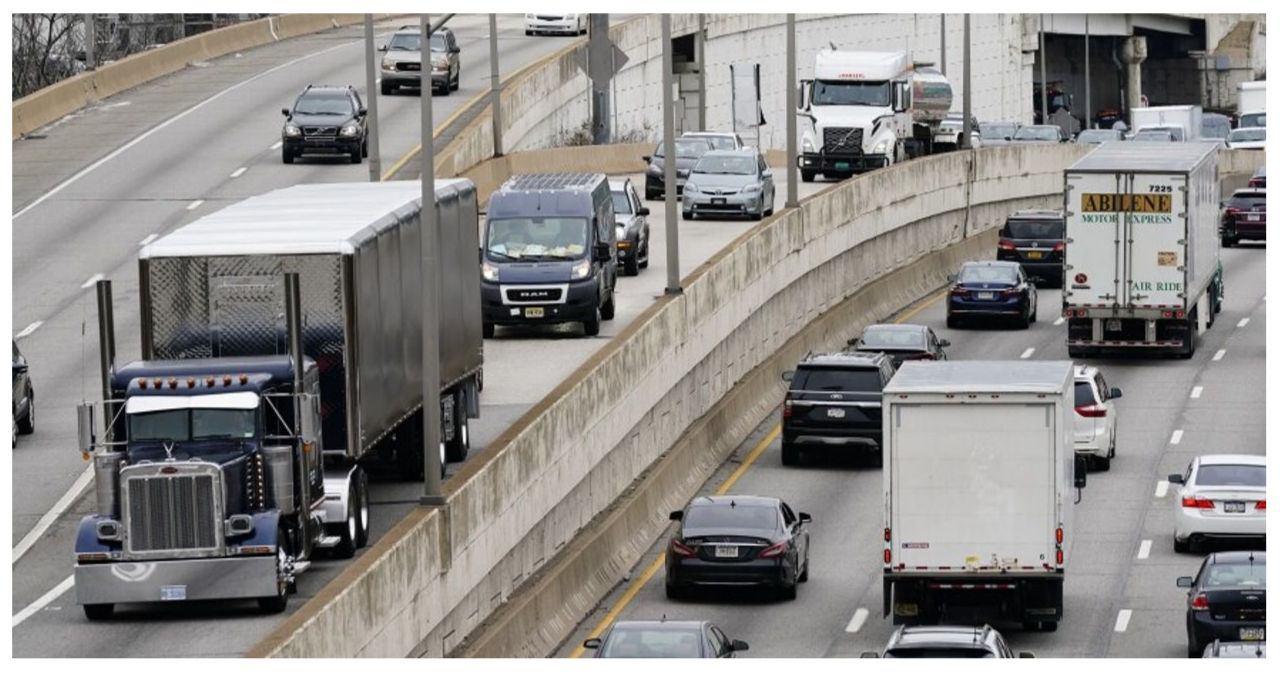Alabama Attorney General Steve Marshall has joined forces with numerous other states in a lawsuit against the Biden Administration and California regarding the recent restrictions on truck emissions. This legal action was initiated by Nebraska Attorney General Mike Hilgers on Monday. The Environmental Protection Agency (EPA) has defended the stringent emissions standards, stating that they will contribute to mitigating the impact of greenhouse gases, which are major contributors to global warming.
In a statement, Hilgers expressed concerns regarding the potential impact of the EPA and California rules on the trucking and logistics industry, as well as the broader economy. According to Hilgers, the phased-in ban on internal-combustion trucks in California is deemed unconstitutional and is expected to have detrimental effects on various sectors. He further emphasized that this regulation could lead to increased prices for customers and have a significant impact on employment opportunities in Nebraska and nationwide.
Hilgers later explained to reporters that the state of Nebraska currently lacks any trucking charging stations. He expressed his concerns about the challenges of transitioning the trucking industry from a diesel and fossil fuels-based infrastructure to an electric-based infrastructure, stating that it may not be feasible.
According to EPA officials, the implementation of the strict emissions standards is expected to play a crucial role in reducing the release of greenhouse gases, which are major contributors to climate change.
The Environmental Protection Agency (EPA) plans to implement new regulations starting from model years 2027 to 2032. According to the EPA, these rules are expected to prevent the release of up to 1 billion tons of greenhouse gas emissions over the next three decades.
According to the agency, an estimated 72 million people in the U.S. who reside close to freight routes used by trucks and other heavy vehicles could greatly benefit from emissions restrictions. These individuals bear a disproportionate burden of dangerous air pollution.
The EPA spokesperson refrained from commenting on the legal challenge to the new rules on Monday, stating that there is pending litigation.
Starting in 2036, California is facing a challenge from Republican attorneys general who are seeking to overturn rules that would prohibit the sale of diesel-powered big rigs and buses within the state.
I reached out for comment to California’s Air Resources Board on Monday, but they did not respond to my email.
California has taken a proactive approach in its efforts to eliminate fossil fuels, implementing new regulations in recent years that aim to gradually phase out gas-powered vehicles, trains, trucks, and even lawn equipment in the state with the highest population in the country. However, this has not gone without resistance from industries and Republican leaders in other states who are advocating for a different stance.
A group of Republican-led states in 2022 contested California’s ability to establish emissions standards that exceed the regulations set by the federal government. Recently, the U.S. Court of Appeals for the District of Columbia Circuit determined that these states did not provide sufficient evidence to demonstrate how California’s emissions standards would lead to increased costs for gas-powered vehicles in their respective states.
The states that have joined Nebraska’s recent action against the EPA include Alabama, Alaska, Arkansas, Florida, Georgia, Idaho, Indiana, Iowa, Kansas, Kentucky, Louisiana, Mississippi, Missouri, Montana, Oklahoma, South Carolina, South Dakota, Tennessee, Texas, Utah, Virginia, West Virginia, and Wyoming.
The following states have joined Nebraska’s lawsuit against California: Alabama, Arkansas, Georgia, Idaho, Indiana, Iowa, Kansas, Louisiana, Missouri, Montana, Oklahoma, South Carolina, Utah, West Virginia, and Wyoming.



